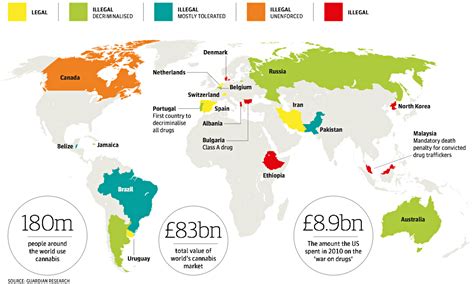
The landscape of marijuana policy in the United States is rapidly evolving, characterized by a widening gap between federal regulations and state-level reforms. While the federal government continues to classify marijuana as a controlled substance, many states have adopted more liberal policies, including the legalization of medical and recreational cannabis.
One of the key federal actions is the Consolidated Appropriations Act 2023, which includes a provision that prevents the Department of Justice from interfering with state medical marijuana laws. This rider symbolizes a significant shift in federal stance, offering a level of protection for states’ rights in formulating and enforcing their own marijuana policies.
At the federal level, the FDA is engaged in regulating cannabis and cannabis-derived products. The agency acknowledges the use of unapproved cannabis products in treating medical conditions such as AIDS wasting, epilepsy, and neuropathic pain. However, the FDA’s involvement highlights the complexity of navigating between federal oversight and emerging state-level legalization efforts.
President Biden’s recent announcement to pardon all prior federal offenses of simple marijuana possession marks another significant milestone in federal marijuana policy. This move reflects an evolving perspective at the highest levels of government, recognizing the need to reform outdated approaches to marijuana regulation.
The CDC has been actively working to understand the public health implications of marijuana use. Their efforts are focused on identifying and addressing health concerns while improving our understanding of marijuana’s impact on public health. This is particularly important in the context of increasing legalization and the widespread use of cannabis across various demographics.
Globally, the legal status of cannabis varies widely, with a trend towards liberalization in many regions. In the United States, nearly half of the states had legalized recreational cannabis by 2023, illustrating a significant shift in public policy and perception.
Recent developments in marijuana law, as detailed in CRS Reports, indicate a growing divergence between federal and state regulations. States have been experimenting with marijuana liberalization policies for decades, starting with decriminalization in the 1970s and evolving to comprehensive medical and recreational legalization models.
In summary, the current state of marijuana policy in the United States is marked by significant shifts at both federal and state levels, reflecting a broader trend towards liberalization and recognition of the need for reform in marijuana laws and regulations.
CRS Reports
FDA Regulation of Cannabis and Cannabis-Derived Products
Marijuana and Restrictions on Immigration – CRS Reports
Statement from President Biden on Marijuana Reform
What We Know about Marijuana – CDC
The Impact of Recreational Cannabis Legalization
Marijuana and Public Health – CDC
Current State of Cannabis Use Policies and Research
Recent Developments in Marijuana Law – CRS Reports
Medical Marijuana and Marijuana Legalization – PMC